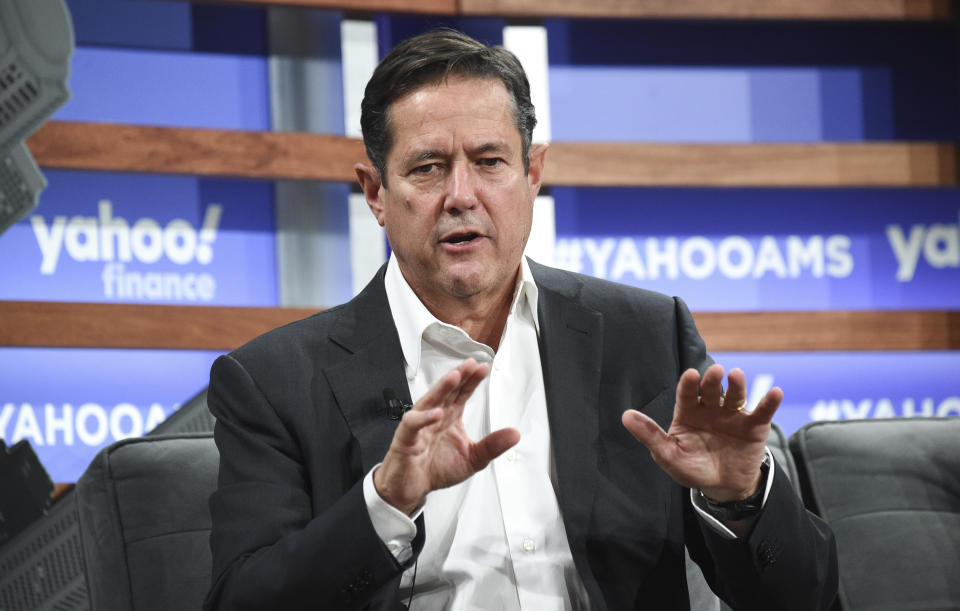Barclays CEO nails what everyone gets wrong about millennials
As the conventional wisdom goes, millennial employees prize flexibility over loyalty, hopping from one job to the next in search of the right fit. In a newly released interview, Barclays (BCS) CEO Jes Staley suggests that assumption is incorrect.
Staley, who calls JPMorgan Chase (JPM) CEO Jamie Dimon his mentor, recounted a panel appearance by two millennial business founders at an event with many older chief executives in the audience. The millennials said, “We bet you think we don’t believe in loyalty...no, you guys are wrong, we don’t believe major corporations are loyal to us.’”
“There’s something to that,” Staley tells Yahoo Finance Editor-in-Chief Andy Serwer on Oct. 10. “Major corporations need to re-earn a degree of trust with people who work for us.”
Over half millennials plan to leave their current job within two years and just 28% plan to stay beyond five years, according to a Deloitte survey last year of 10,455 millennials. Meanwhile, a study by a career site The Muse found 58% of 8,000 “next gen professionals” surveyed at the end of 2018 said they plan to change jobs this year.
But the reasons behind the sentiment are far less clear.

‘A lot of major businesses around the world have the same challenge’
Staley recounted how the millennial panelists linked their distrust of employers to the tumultuous economic years in which the panelists came of age.
“‘We grew up with the dot-com crisis in the early 2000s, financial crisis in 2008-2009, and then most of us, or many of us, had a parent who worked in a business in Rochester, New York, that one day was moved to Mexico,’” Staley remembers them saying. “‘The reason why the two of us, these two young women, started this company up, is because no one can fire us.’”
A Deloitte study this year confirmed millennial distrust of business, finding 55% believe business has a positive impact on society and just 26% believe the economy will improve in the next year.
Staley became the chief executive at Barclays in 2015, when he left a position as managing partner at BlueMountain Capital. He has faced some notable challenges during his tenure, including a fine for his effort to unmask a company whistleblower as well as the arrival and ongoing criticism of activist investor Edward Bramson.
In the second quarter, Barclays reported $1.23 billion in net income attributable to equity holders, a year-over-year decline of 19%. The bank reportedly made cuts last month to its global workforce in an effort to offset losses in its markets division.
In light of this trust gap, Staley said he has tried to alter the way he runs Barclays, even amid a difficult stretch for the business.
“Barclays has gone through a massive restructuring, we had to sell a lot of business, let a lot of people go,” he says. “If I have a little legacy I’d like to leave, it would be to restore to the extent that I can, the sense that Barclays is loyal to the people who work there.”
“I think a lot of major businesses around the world have the same challenge,” he adds.
Max Zahn is a reporter for Yahoo Finance. Find him on twitter @MaxZahn_.
Read more:

